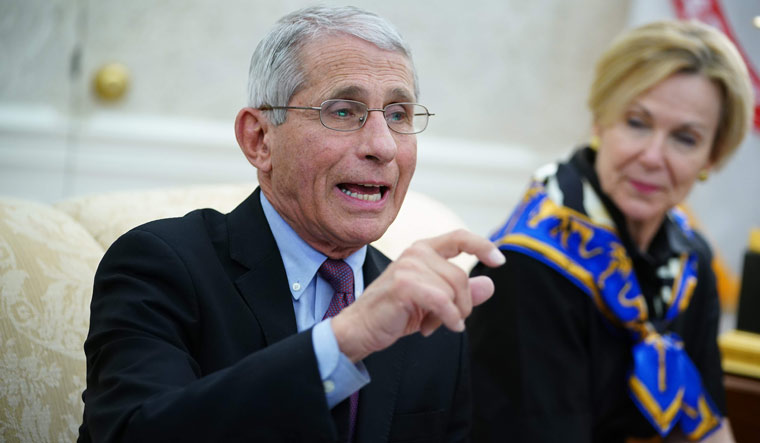American physician and immunologist Anthony Fauci told the US Senate that he “would not be surprised” if new [COVID-19] virus cases in the country reach 100,000 per day.
Fauci further said “Clearly, we are not in control right now,” and warned that Americans weren’t wearing masks or following social distancing enough to prevent the spread of the virus.
Anthony Fauci, a leading member of President Donald Trump's coronavirus task force, said that authorities needed to take steps to suppress the pandemic immediately. Fauci was addressing the Senate Committee on Health, Education, Labour and Pensions.
Fauci said that all new cases came from Arizona, California, Florida and Texas.
Tuesday saw an alarming rise of 40,000 cases in a day, which was the fourth time in five days.
Governors of more states have asked residents to self-quarantine. New York Governor Andrew Cuomo said nearly half of all Americans must self-quarantine if they visit the state.
There are now 16 states on the list. The newly added states are California, Georgia, Iowa, Idaho, Louisiana, Mississippi, Nevada and Tennessee, besides the original hotspots of Texas and Florida.
Fauci, who is director of the National Institute of Allergy and Infectious Diseases, criticised states for “skipping over” benchmarks required for reopening and said cases will rise as a result.
“I can't make an accurate prediction, but it is going to be very disturbing, I will guarantee you that,” Fauci was quoted as saying by BBC.
“We can't just focus on those areas that are having the surge. It puts the entire country at risk,” he added.
Fauci also said the likelihood that the US is likely to develop herd immunity is less, even when the vaccine becomes available as there are a large number of Americans who refuse to get vaccines.
“There is a general anti-science, anti-authority, anti-vaccine feeling among some people in this country—an alarmingly large percentage of people, relatively speaking,” he said, calling for more education to promote confidence in vaccines.


